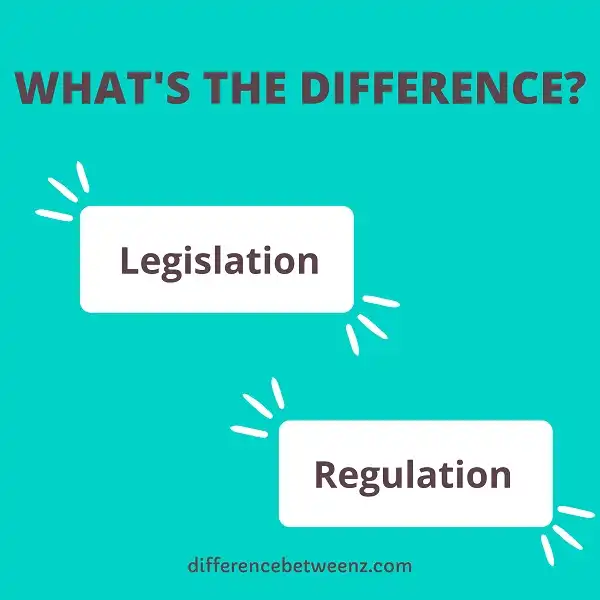Both legislation and regulation are important aspects of any government, but they are two very different things. Legislation is the creation of laws, while regulation is the enforcement of those laws. In this blog post, we will explore the differences between these two important aspects of governance. We will also look at some examples to help illustrate these differences. Finally, we will discuss the importance of each in order to help you better understand them.
What is Legislation?
Legislation is a broad term that can refer to any law or statute enacted by a government body. In the United States, legislation is typically introduced by members of Congress and must be passed by both the House of Representatives and the Senate before it can be signed into law by the President. Legislation can also take the form of executive orders or regulations enacted by federal agencies. While laws are often intended to address specific problems or issues, they can also have much broader effects on society. For example, the Civil Rights Act of 1964 not only banned discrimination on the basis of race but also helped to transform American society by promoting racial equality. As such, legislation plays an important role in shaping both the legal landscape and the larger culture.
What is Regulation?
Regulation is the process or set of rules by which a system, process, activity, etc. is controlled. Regulation can be external (e.g. laws or standards imposed by a government or other authority) or internal (e.g. company policies). The purpose of regulation is to ensure that the system or activity in question operates safely, efficiently, and effectively. Regulation may also be necessary to protect the interests of those who are affected by the system or activity (e.g. consumers, employees, investors, etc.). In some cases, regulation may also be designed to promote competition or fair trade. There are many different types of regulation, and the specific rules and requirements will vary depending on the context. However, all regulations share the common goal of ensuring that the system or activity in question operates in a safe, efficient, and effective manner.
Difference between Legislation and Regulation
Legislation and regulation are two terms that are often used interchangeably, but there is a subtle difference between the two. Legislation is a law or set of laws that are passed by a governing body, such as Congress or Parliament. Regulation, on the other hand, is a rule or set of rules that are promulgated by an administrative agency. In other words, legislation is enacted by the legislature, while regulation is created by the executive branch. While both Legislation and regulation can have the force of law, Legislation is generally broader in scope, while regulation is more specific. For example, Congress may pass a law that prohibits discrimination in the workplace, while the Equal Employment Opportunity Commission may issue regulations that detail what constitutes discrimination. In sum, Legislation sets the general parameters of what is allowed or not allowed, while regulation fills in the details.
Conclusion
The difference between legislation and regulation is an important distinction to understand. It can help you better understand how your city, state, or country governs certain aspects of life. Knowing the difference can also help you when trying to make a change in an industry or sector.


